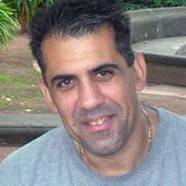Arthur Compton (1892-62) discovered what we call today Compton Scattering (inelastic scattering) between radiation (electromagnetic waves) and an electron. The description of the effect follows closely with Einstein’s (1892-62) interpretation that radiation can be considered a photon with energy, E given by E=hf, where h = Planck’s constant and f = frequency (all in consistent units). So, when a photon collides with an electron, it uses up some of its energy so the colliding photon now has less power and using E=hf, the frequency must reduce (or the wavelength must increase since c=f.lamda), where c is the speed of light and lamba = wavelength of the light. This change can be measured, and for this work, Compton won the Nobel Prize in Physics in (1927).
The Compton Effect
It is not too difficult to show the Compton effect using Special Relativistic considerations (and Planck’s fundamental formula) that:
![]()
Where Delta(lambda) is the change in wavelength of the radiation before and after collision (which can be measured), m=mass of the electron, c = the speed of light, h=Planck’s constant (all known) and theta is the angle made between the incident and reflected ray, so a graph of Delta(lambda) versus cos(theta) will give a straight line with gradient –(h/mc) from which any one of these fundamental constants can be computed and compared with other experimentally determined values of them. This is common practice amongst us Physicists.
A Glimpse into the His Life
Compton’s work was a sensational discovery at the time, and he was also part of the Manhattan Project, where he was in charge of the project’s Metallurgical Laboratory. Staying with the Manhattan project, it would have been nice to digress here, but I will only mention that Fermi was there (and I am fortunate to teach Fermi problems at UCL) as was Feynman, who I have discussed on this platform on many occasions.
Arthur has some of the most inspiring quotes in the History of Physics. One that immediately springs to mind is:
Every great discovery I ever made, I gambled that the truth was there, and then I acted in faith until I could prove its existence. A. Compton.
Compton was God fearing and attributed many of his findings to him and frequently mentions him. In particular, he stated:
It is not difficult for me to have this faith, for it is incontrovertible that where there is a plan there is intelligence – an orderly, unfolding universe testifies to the truth of the most majestic statement ever uttered – ‘In the beginning, God.’ A. Compton.
Teaser of Summer School
I am hoping to deliver a Summer School in the future entitled:
Famous Physicists and God: The Atheists, The Agnostics, and the Theist, in which I will discuss more of my “old friends”, including Newton, Maxwell, Faraday, Salam, and Einstein. In which of the three groups the “Giants” will appear will only be revealed during the course.
Alas, I have run out of space again until next time.


